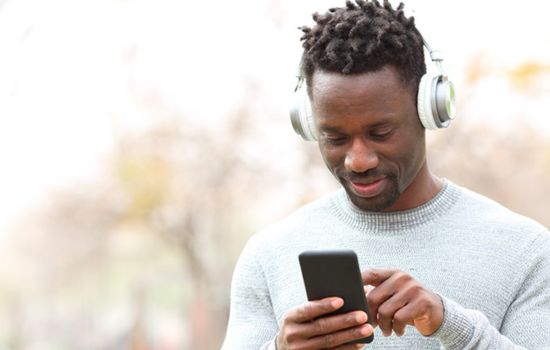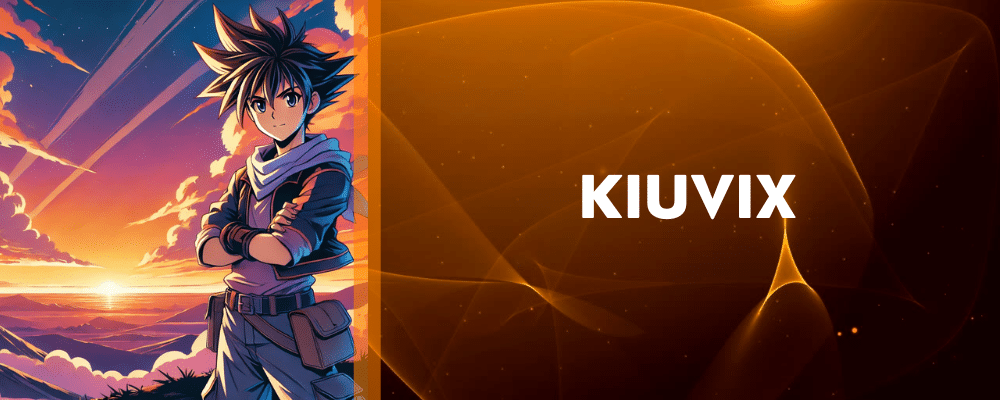Advertisements
There comes a moment in every person's life when they realize they've been living inside an invisible cage, built not with metal bars, but with terms of service, privacy policies, and algorithms designed to maximize corporate profits rather than authentic human experiences.
In the music world, this cage has become so sophisticated that many don't even notice they're trapped: they pay monthly for the privilege of temporarily accessing music that disappears when they stop paying, they accept that their most intimate tastes are monitored and sold to advertisers, and they normalize the idea that their most beloved songs can be removed without consultation due to legal disputes that occur in corporate boardrooms.
But something extraordinary is happening in today's digital landscape: a quiet revolution that is returning power to the right hands, eliminating unnecessary intermediaries, and reconnecting people to the purest essence of the musical experience, where freedom is not a privilege rented monthly, but a right exercised permanently through apps that are rewriting the rules of the musical game forever.
Deezer: Music & Podcast Player
★ 4.2Information on size, installation and warranty may vary as updates are made in official stores.
Advertisements
Advertisements
See also
- Find Your Mobile Phone Fast
- Free TV Apps
- More than a Code Reader: Your Digital Mechanic
- Palmistry: Read your Future
- Learning While Playing: English for Kids
The Digital Emancipation of the Musical Experience
Decoding the Corporate Streaming Matrix
For over a decade, major streaming corporations have operated under one fundamental principle: turning music from a cultural asset into a temporary serviceThey've gotten millions of people to agree to pay indefinitely for access to something that historically was owned permanently.
This transformation was not accidental. It was a deliberate economic strategy Designed to maximize recurring revenue while minimizing the consumer's real rights. They sold you convenience, but took away your control. They offered you access, but stole your property.
When exactly did we normalize the idea that our most precious musical memories depended on maintaining an active subscription?
The Renaissance of Musical Autonomy
Free offline music apps are not just technological tools; they are instruments of cultural liberationThey represent a return to fundamental principles that the music industry had abandoned in favor of extractive models:
- Permanence on temporality
- Privacy on trade surveillance
- Diversity on algorithmic homogenization
- Accessibility on economic exclusivity
The Catalysts of Your Personal Musical Revolution
Deezer: The Universal Personalized Library
Deezer has achieved something that seemed impossible in the digital age: creating an experience that combines the vastness of a global library with the intimacy of a carefully curated personal collection.
Its technology deep customization It goes beyond simply tracking what you listen to. It analyzes emotional patterns, temporal contexts, and taste evolutions that reveal your authentic musical identityTheir algorithm doesn't tell you what you should listen to; it discovers what's already resonating in your soul.
Deezer's offline functionality uses predictive intelligence that anticipates your musical needs before you consciously articulate them. If you historically listen to jazz on Sunday afternoons, it automatically ensures you have a rich selection of jazz available offline for those moments.
The most revolutionary thing is its cultural discovery system. It not only connects you with music similar to what you already love; it gradually introduces you to musical traditions from cultures that may expand your worldview. It's like having a personal musical anthropologist working tirelessly to enrich your cultural understanding.
Deezer offline turns your device into a cultural consulate where every country in the world has a sound representation.
YouTube Music: The Living Archive of Human Creativity
YouTube Music represents something unique in the history of cultural documentation: the first music archive created collaboratively by humanity itselfIt's not just a library; it's an interactive museum where each song comes with its complete historical, cultural, and social context.
Its offline function gives you access to multiple layers of musical experience:
- Official versions of established artists
- Alternative interpretations that reveal new dimensions of familiar songs
- Historical documentation of musical moments that defined eras
- Educational content that contextualizes each genre and musical movement
YouTube Music offline works as a cultural time machine where you can explore not just songs, but the stories, influences, controversies, and legacies that surround them. It's interactive musical anthropology that allows you to understand how music has shaped and been shaped by historical events.
Your algorithm intelligent contextualization connects music with social movements, political changes, technological innovations, and cultural evolutions, creating a holistic understanding of why certain music emerges at specific moments in history.
SoundCloud: The Laboratory of Musical Authenticity
SoundCloud maintains something that corporate platforms have completely lost: the immediacy of genuine creativityHere, the music isn't filtered by executive committees, focus groups, or marketing algorithms. It's human creativity in its purest, uncensored form.
Its offline ecosystem gives you access to a parallel universe of artistic experimentation where:
- Emerging artists upload ideas in real time without corporate restrictions
- Spontaneous collaborations They arise between creators who have never met physically.
- Hybrid genres They evolve organically without commercial pressure
- Sound experiments challenge established musical categorizations
SoundCloud offline makes you archaeologist of the musical futureThose experimental recordings you download today will be invaluable historical documents that testify to what unfiltered human creativity sounded like during this specific era.
Its global community of independent producers constantly creates impossible cultural fusions: a classical violinist from Austria collaborating with a trap producer from Atlanta, a traditional Japanese singer mixing with Afro-Brazilian beats, experiments that are only possible in a truly democratic space.

Conclusion
Free offline music is not just a more convenient technological alternative; it is the reconquest of your personal cultural sovereigntyIn a world where more and more fundamental aspects of the human experience are being monetized and controlled by corporate algorithms, your offline music library becomes liberated territory where your artistic choices are truly yours.
Deezer, YouTube Music, and SoundCloud have proven that it is possible to create cultural ecosystems that simultaneously nurture individual creativity, global diversity, and personal freedom without sacrificing quality, sustainability, or innovation. They have proven that true cultural abundance It arises from universal accessibility and guaranteed permanence, not from artificial scarcity and commercial restrictions.
Your offline music library transcends being simply a collection of audio files; it's your declaration of cultural independence, your portable emotional sanctuary, your inalienable sonic identity. It's the digital manifestation of something profoundly human: the need to surround ourselves with beauty we can genuinely own, without time constraints, without cancellation clauses, without extractive intermediaries.
The most revolutionary symphony of our time isn't being conducted by corporate executives or profit-maximizing algorithms; it's being composed by millions of individuals who have decided that their relationship with music is too sacred to be temporarily rented out. Your sonic freedom begins when you recognize that you are the conductor of your musical life, and that you now have the tools to create a masterpiece that will be truly and permanently yours for life.




